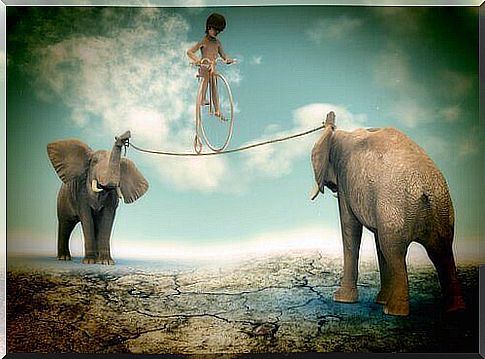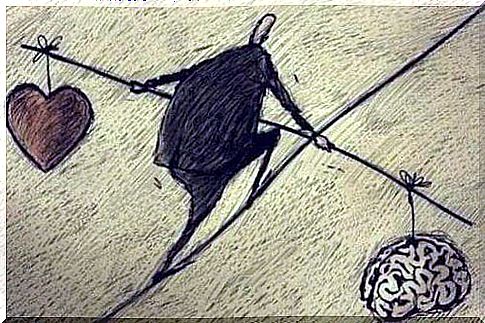Self-control Has To Be Learned
Self-control is a mechanism to make wishes come true, but it requires patience. We know we can achieve the goal, but the question is whether it is worth it.

The self-control is one of the most important psychological skills. Emotional balance and stability to control impulses obviously help us to feel better.
Today we invite you to think about it with us.
You have an apple and a piece of chocolate cake in front of you and you are determined to stick to your diet and not to sin … but can you actually resist the temptation?
Everyone knows these or similar situations in which self-control is required. A long-term goal (e.g. losing weight) is often in conflict with other, more immediate pleasures (chocolate cake).
If you manage to control the impulses in these situations and forego momentary enjoyment, you can achieve goals and nourish your motivation until then.
This is crucial in countless life situations.

Why are we losing control?
You really want to lose a few pounds, but still succumb to the temptation?
- The impulsive system searches the environment for stimuli or elements that create a feeling of pleasure (for example the chocolate cake).
The strength of these impulses is not always and not the same for everyone, it depends on numerous circumstances. It is therefore recommended, for example, not to go shopping when you are hungry.
- The reflexive system plans and analyzes the consequences of an action.
Thinking about what you are going to do takes a lot of resources and the ability to manage yourself – it is exhausting but profitable.
If you show consistency, visiting the fitness center becomes a habit and the question of whether or not when you are sitting lazily on the couch does not arise at all.
Remember that it takes 21 days to develop a habit, that is, to integrate a certain behavior.

Delayed Rewards and Success in Life
The best example of emphasizing the importance of the ability to postpone lust and to tolerate frustration is found in childhood.
Everyone knows that it is difficult for a child not to play with a ball in an enclosed space or not to eat a candy when no one is around to supervise them (sometimes children even unconsciously eat the candy, even if they know that they are being watched).
Well-known psychologist Walter Mischel conducted a study of delayed reward that came to be known as the Marshmallow Test.
In doing so, children need to control their impulse to eat a candy so that they can get more of it.
Based on this study, a relationship between self-control and success in life could be established, because it is believed that control is an important key to successful development.
8 keys to developing self-control
You have to learn to control yourself. It is very helpful to know what those people have in common who manage to quit smoking, stick to a weight loss regimen or train for a marathon.
- You are aware of the risks and negative consequences that certain behaviors can cause. This means that they set up rules such as “if … then”, which helps them not to get lost so quickly by anticipating.
- They reinforce their personal promise by telling loved ones about their goals and action plans.
- They implement their abstract goals in small stages or tasks. They then have to fulfill this.
- They are happy about partial successes and achieved goals that they celebrate.
- They change their impulses by establishing a relationship between external temptation and other things.
- And they train their memory in order to always have the goals and motivation present.
- They think about situations that could pose a risk to the achievement of their goals.
- They allow themselves breaks and rest to be able to renew their mental resources and their motivation.
The path to self-control is to learn to resist temptation and use strengths.
Whenever you have to choose between an immediate desire or a long-term goal, you can imagine your reflexive and impulsive systems struggling with each other.
Which win is more worthwhile?









